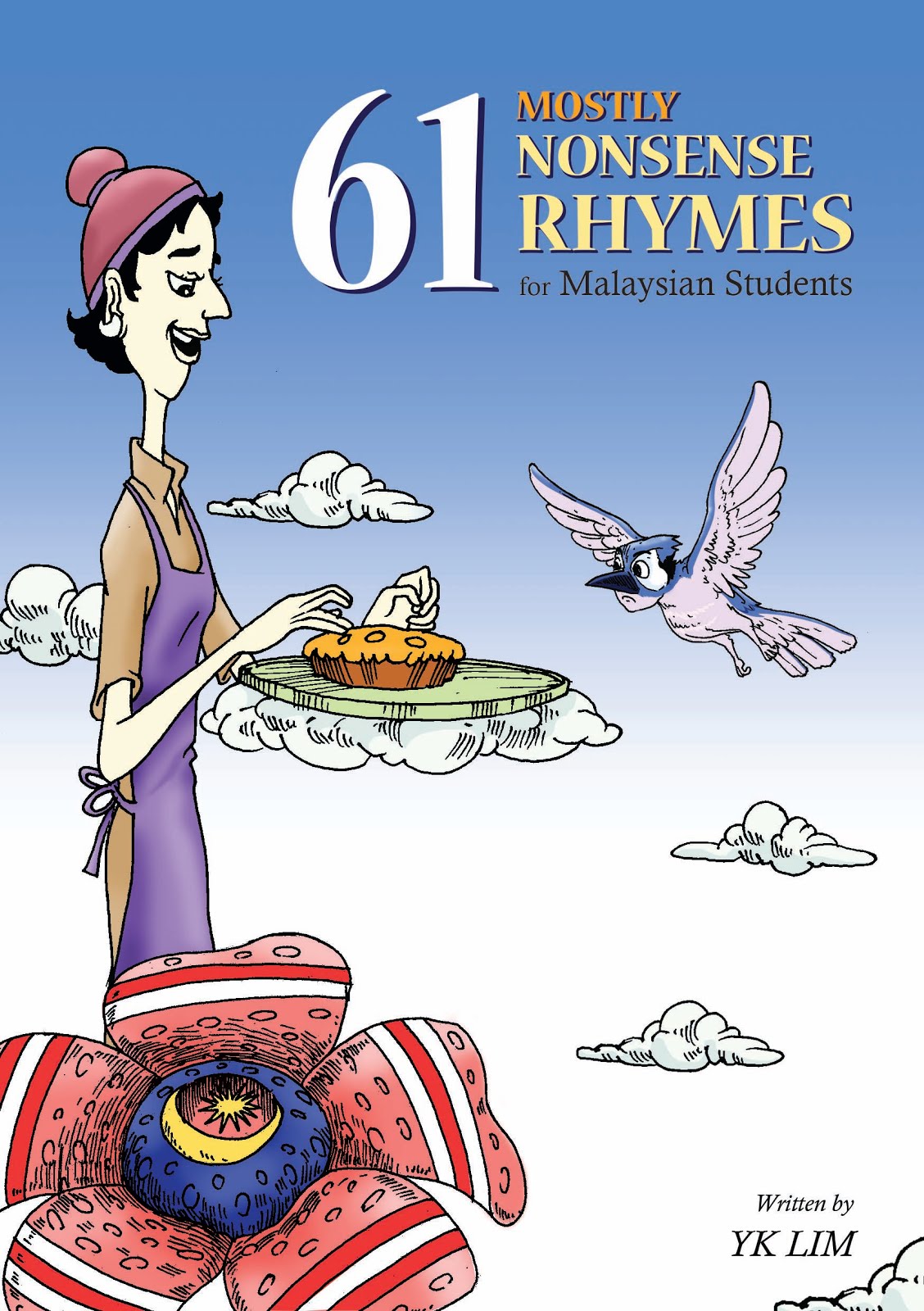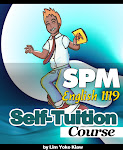| As it appeared in The Star, Sunday 21st August 2011 |
Marred By Careless Transation: Are You Still Playing Your Flute?
Zurinah Hassan’s Masihkah Kau Bermain Seruling is the kind of poem that’s meant to be read aloud. Written in a conversational style, the poem has a rhythmic and lyrical beauty that’s a joy to read. Unfortunately, the beauty of this well-crafted poem is marred by careless translation. Here’s the poem taken from the Ministry of Education’s A Collection of Poems, Short Stories and Drama (p.6, 2009 ed):
Are you still playing your flute?
When there is hardly time for our love
I am feeling guilty
To be longing for your song
The melody concealed in the slim hollow of the bamboo
Uncovered by the breath of an artist
Composed by his fingers
Blown by the wind
To the depth of my heart.
Are you still playing your flute?
In the village so quiet and deserted
Amidst the sick rice field
While here it has become a luxury
To spend time watching the rain
Gazing at the evening rays
Collecting dew drops
Or enjoying the fragrance of flowers.
Are you still playing your flute?
In the village so quiet and deserted
Amidst the sick rice field
While here it has become a luxury
To spend time watching the rain
Gazing at the evening rays
Collecting dew drops
Or enjoying the fragrance of flowers.
Are you still playing your flute?
The more it disturbs my conscience
to be thinking of you
in the hazard of you my younger brothers unemployed and desperate
my people disunited by politics
my friend slaughtered mercilessly
this world is too old and bleeding.
The more it disturbs my conscience
to be thinking of you
in the hazard of you my younger brothers unemployed and desperate
my people disunited by politics
my friend slaughtered mercilessly
this world is too old and bleeding.
We see the persona asking her beloved, the flautist, throughout the poem: Are you still playing your flute? Where the question mark is placed, the question is left hanging, incomplete. Instead, the question should terminate at the end of the second line in the first stanza:
Are you still playing your flute/When there is hardly time for our love?
In the second stanza, the poem should terminate at the end of the stanza:
Are you still playing your flute/In the village so quiet and deserted/Amidst the sick rice fields/While here it has become a luxury/To spend time watching the rain/Gazing at the evening rays/Collecting dew drops/Or enjoying the fragrance of flowers?
Likewise, in the third stanza, it should have been an extended question. Reading the translation, I suppose it would be difficult to fit in the question correctly. The stanza could be rewritten to accommodate the question mark:
Are you still playing your flute/When it disturbs my conscience/to think of you/in the hazards of the city/ my younger brothers unemployed and desperate/my people disunited by politics/my friends slaughtered mercilessly?/ this world is too old and bleeding.
Poetry does allow the poet to take creative liberty with grammar rules. Interestingly, in the original poem, the poet has taken the liberty to dispense with the question mark throughout the poem. If I may hazard a guess: the translator, bearing in mind that schools are teaching literature and not Literature, decided to insert appropriate punctuation marks in the teaching of poetry.
The persona asks the flautist, where the flute symbolizes art or the artist, if he is still playing the flute when society is afflicted with social, political and economic problems. Even the village is not spared: it’s deserted/Amidst the sick rice field. Why only one rice field? The Malay version has sawah sudah uzur, but common sense would tell us that the poet is referring to rice fields, and not one rice field!
Then, the next line in the second stanza has this: While here it has become a luxury. Compare this with the original:
Masihkah kau bermain serulingketika kampung semakin sunyi
sawah telah uzur
waktu jadi terlalu mahal
untuk memerhatikan hujan turun
merenung jalur senja
mengutip manik embun
menghidu harum bunga.
The language and tone of the persona has changed from one of love and tenderness to a tone of mild impatience or annoyance. The setting of the second stanza, in my opinion, is in the kampong/village.
However, the English version has the adverb of place, here, in the fourth line. The insertion of here could present a problem to the reader, or the student taking the examination. The persona appears upset that her beloved can still find time to play his flute when it’s even a luxury watching the rains/Gazing at the evening rays/Collecting dew drops/Or enjoying the fragrance of flowers. Does here refer to the city that’s stated in the third stanza of the original poem? It appears to me that the translator has unwittingly given this stanza a different meaning: the flautist is playing his flute in the village, while here - the persona in the city?- it’s a luxury to watch the rains, etc. Which is really okey-dokey, if we connect here with the city expressed in this line in the next stanza: di kota yang semakin kusut dan tenat.
But that’s not to be. The translation has these lines in the third stanza: The more it disturbs my conscience to be thinking of you/ in the hazard of you. There’s no hint of the city. Compare this with the original:
Masihkah kau bermain seruling
ketika aku terasa mata bersalah
untuk melayani rasa rindu padamu
di kota yang semakin kusut dan tenat
adik-adikku menganggur dan sakit jiwa
bangsaku dipecahkan oleh politik
saudara diserang bom-bom ganas
dunia sudah terlalu tua dan parah
ketika aku terasa mata bersalah
untuk melayani rasa rindu padamu
di kota yang semakin kusut dan tenat
adik-adikku menganggur dan sakit jiwa
bangsaku dipecahkan oleh politik
saudara diserang bom-bom ganas
dunia sudah terlalu tua dan parah
If there’s one line that stands out like a sore thumb, it’s the translation of di kota yang semakin kusut dan tenat: in the hazard of you. In the hazard of you!? What in the world does it mean? It doesn’t even bear any resemblance to the original. Robinette, a reader on the poet’s blog, rightfully remarked : “the line in the hazard of you, it's a wonder not more English teachers had risen up in arms!; …. May I suggest, with my limited understanding of BM, to rephrase it as in this peril-filled city/in this city fraught with hazards/perils”. Robinette also correctly pointed out that the noun hazard should be pluralized.
It is certainly easier to translate directly by saying: in the hazards/perils of the city. And why the singular in my friend slaughtered mercilessly, when the poet is referring to saudara diserang bom-bom ganas? It would make more sense that there’s more than one victim in a war. The translator has also taken out the graphic image of war that’s in the original – no violence, I suppose. On her blog, the poet says she’s referring to the killings in Bosnia and Palestine: Dan di merata dunia spt Bosnia dan Palestin, orang Islam sedang diburu oleh bom-bom ganas .
The last stanza, with the poet’s own translation, has been left out by MOE:
Di sinilah berakhirnya percintaan kita
kerana zaman sedang menuntut para seniman
hidup di luar dirinya.
kerana zaman sedang menuntut para seniman
hidup di luar dirinya.
Is this the end of our love
time is forcing us, as artists not to be ourselves
What is MOE’s reason for leaving this stanza out?
Perhaps MOE does not want the students to read this because it sums up the theme of the poem? But that’s not fair to students taking the examination. What if students paraphrase the excised stanza as the theme? What if they quote the poet with reference to the friends slaughtered mercilessly as referring to the victims in Bosnia and Palestine? Even this correct answer can be dismissed because there’s no hint of war in the English translation. Anyway, the translation only has this: my friend slaughtered mercilessly. Maybe the persona’s close friend was slaughtered by twenty rampaging Mat Rempits with swinging helmets high on ganja? Any answer is possible.
In this article, I have attempted to look at only certain aspects of language in the translation. I’ve hesitated to delve deeper into the quality of translation as I can’t claim to have a strong command of Malay. I believe poetry lovers and English teachers who are more conversant in Malay will have more to say about the accuracy of the translation. It’s obvious the English translation has not done justice to Zurinah Hassan’s poem.
Wake up MOE! It’s time for a revision.
(Note: The words in bold are my editing. The )
Reference:
1. A Collection of Poems, Short Stories and Drama (Ministry of Education, p.6, 2009 ed)
2. Zurinah Hassan’s blog: http://zurinahhassan.blogspot.com/2010/05/masihkah-kau-bermain-serulingare-you.html








